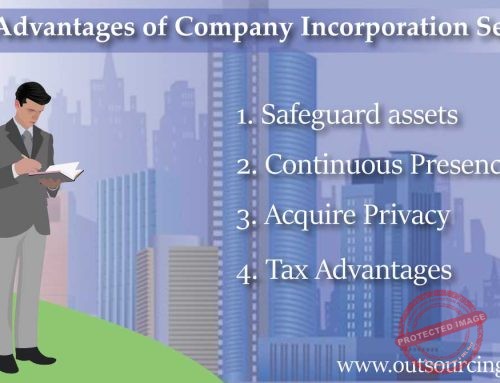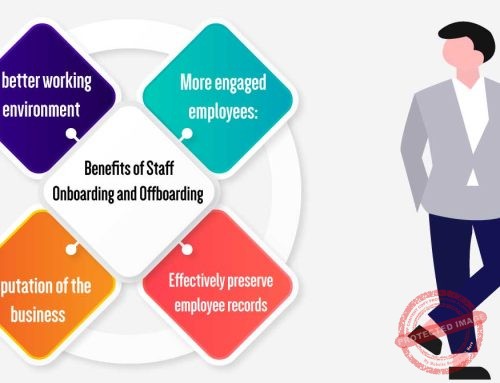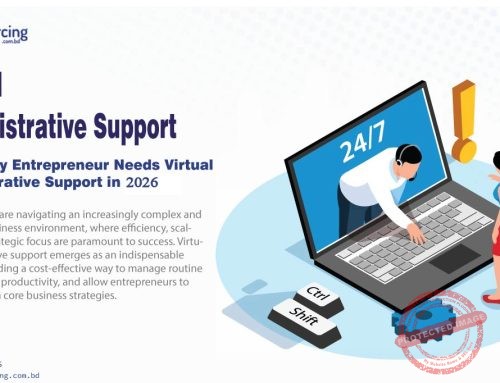Why is supply chain risk management important for companies in today’s volatile business environment? As global supply chains become more interconnected, the potential for disruptions increases, ranging from natural disasters to supplier failures.
Businesses must ask themselves: How prepared are they to handle these risks? Understanding why supply chain risk management is important helps organizations anticipate challenges, reduce vulnerabilities, and maintain operational stability.
In this blog, we’ll explore why effective risk management is critical for safeguarding supply chains and ensuring long-term success.
Supply Chain Management Definition
Supply chain management (SCM) is the strategic coordination of the entire production flow of goods and services. It involves sourcing raw materials, production processes, and delivering finished products to consumers efficiently and effectively.
SCM aims to optimize every stage, reducing costs and improving overall performance. This system integrates various activities, including procurement, inventory management, and logistics, ensuring seamless communication and collaboration between suppliers, manufacturers, and distributors.
A well-managed supply chain helps businesses respond quickly to market demands, avoid delays, and enhance customer satisfaction. Technology plays a significant role in modern SCM, providing real-time data and predictive analytics for better decision-making.
Overall, supply chain management supports businesses by improving operational efficiency, enhancing competitiveness, and fostering sustainability. Implementing best practices in SCM ensures companies can adapt to industry challenges and capitalize on emerging opportunities.
Is Procurement Part of Supply Chain?
Yes, procurement is an essential part of the supply chain. It involves acquiring the necessary goods and services required for production and operations. Effective procurement ensures that organizations have the suitable materials at the right time.
Procurement encompasses various activities, including identifying suppliers, negotiating contracts, and managing relationships. By streamlining procurement, businesses can reduce costs and enhance the quality of materials they source for production.
Incorporating procurement into supply chain management enables companies to align their purchasing strategies with overall business goals. This alignment fosters better stakeholder collaboration, improving efficiency across the supply chain.
Ultimately, understanding that procurement is part of the supply chain is crucial for organizations aiming to optimize operations. Integrating procurement strategies with supply chain practices enhances productivity and customer satisfaction.
Why Is Supply Chain Risk Management Important?
In today’s globalized and interconnected business environment, why is supply chain risk management important is a critical question for companies looking to maintain smooth operations.
Businesses are exposed to risks such as natural disasters, cyberattacks, political instability, and supplier disruptions. These risks can cause severe delays, increase costs, and damage a company’s reputation.
Understanding why supply chain risk management is important helps organizations mitigate these risks by identifying vulnerabilities and establishing contingency plans. Proactive risk management allows businesses to maintain continuity, reduce costs, and build a resilient supply chain that can handle disruptions, ensuring long-term success and competitiveness.
Here are the top 7 reasons why supply chain risk management is important:
1. Business Continuity
Effective supply chain risk management ensures business continuity. By identifying potential disruptions, companies can develop contingency plans to mitigate these risks. This helps prevent operational halts and maintains the flow of goods, ensuring customers’ needs are met immediately. Business continuity planning minimizes the impact of unforeseen events, reducing downtime and protecting revenue streams.
2. Cost Control
One of the main reasons why supply chain risk management is important is its ability to control costs. Disruptions in the supply chain often lead to increased expenses, such as expedited shipping or penalties for delayed deliveries. By proactively managing risks, businesses can reduce these unexpected costs. Risk management also helps optimize resource allocation, lowering operational expenses.
3. Improved Supplier Collaboration
Supply chain risk management encourages stronger supplier relationships. Engaging suppliers in risk assessment and mitigation fosters trust and collaboration, leading to a more resilient supply chain. Companies can ensure smoother operations even during disruptions by working closely with suppliers.
4. Enhanced communication- Joint risk mitigation plans
- Stronger trust and transparency
- Collaborative problem-solving
- Shared objectives and goals
5. Reputation Protection
A well-managed supply chain helps protect a company’s reputation. Delays, product shortages, or compromised quality can damage a company’s image in the eyes of consumers and partners. By managing risks effectively, businesses can ensure consistent product availability and maintain customer trust.
6. Agility and Flexibility
Another crucial reason supply chain risk management is important is its ability to enhance a company’s agility. By identifying risks early, businesses can quickly adapt to changing market conditions or disruptions. This flexibility ensures that operations remain smooth, regardless of external challenges.
- Faster response times
- Adapting to market changes
- Efficient resource allocation
- Quick supplier adjustments
- Streamlined decision-making processes
7. Regulatory Compliance
Supply chain risk management ensures that businesses comply with various industry regulations. Non-compliance can lead to fines, legal issues, and operational shutdowns. A robust risk management plan ensures that companies stay compliant, avoiding unnecessary legal trouble while maintaining operational efficiency.
8. Enhanced Decision-Making
Comprehensive risk management improves decision-making by providing valuable data and insights into potential risks. Businesses can make informed choices about inventory levels, supplier selection, and production schedules. This data-driven approach ensures that resources are allocated effectively, leading to better operational performance and cost savings.
- Informed risk analysis
- Prioritizing key initiatives
- Optimized resource distribution
- Effective leadership decisions
- Real-time data utilization
Understanding why supply chain risk management is important is essential for businesses aiming to stay competitive in today’s market. By implementing a solid risk management strategy, organizations can safeguard their supply chains against disruptions, reduce operational costs, and protect their reputation. Ultimately, the benefits of supply chain risk management lead to a more agile, resilient, and efficient business that is well-prepared for the future.
5 Benefits of Supply Chain Risk Management
Supply chain risk management is vital for businesses seeking to navigate today’s complex market landscape. By effectively identifying and mitigating potential risks, organizations can protect their operations, financial health, and reputation.
Understanding the benefits of Supply Chain risk management allows companies to develop resilient supply chains that can adapt to unforeseen disruptions. This proactive approach ensures continuity, enhances decision-making and supports long-term success.
Here, we’ll explain the top 5 benefits of implementing effective supply chain risk management strategies.
1. Enhanced Resilience
Implementing supply chain risk management increases organizational resilience. By identifying potential risks and developing contingency plans, companies can respond swiftly to disruptions, ensuring continuity of operations. This proactive approach minimizes downtime and helps businesses maintain customer satisfaction even during challenging circumstances.
2. Cost Reduction
One key benefit of supply chain risk management is reducing operational costs. By anticipating risks, companies can avoid costly delays and losses associated with supply chain disruptions. Efficient risk management also allows businesses to optimize inventory levels and reduce excess expenditures, contributing to overall financial health.
Improved Supplier Relationships
Effective supply chain risk management strengthens supplier relationships, fostering collaboration and communication. By engaging suppliers in risk assessment processes, businesses can build trust and collaborate to mitigate potential challenges.
This partnership enhances overall supply chain performance and resilience, allowing organizations to navigate disruptions more effectively. Strong supplier relationships enable companies to negotiate better terms, leading to cost savings and improved product quality.
- Enhanced communication channels
- Joint risk mitigation strategies
- Increased trust and transparency
- Collaborative problem-solving
- Shared goals and objectives
Increased Competitive Advantage
Companies that prioritize supply chain risk management position themselves as industry leaders. By ensuring a stable and reliable supply chain, businesses can respond to market changes faster than competitors. This agility translates to better service delivery and customer satisfaction, solidifying their reputation in the marketplace.
Enhanced Decision-Making
Effective supply chain risk management provides organizations valuable data and insights, leading to improved decision-making. Businesses can prioritize initiatives that drive efficiency and growth by analyzing potential risks and their impacts.
This strategic approach empowers leaders to make informed choices, ensuring the supply chain remains agile and responsive to market changes. With better decision-making, companies can allocate resources more effectively and enhance operational performance, ultimately contributing to long-term success.
- Informed risk assessment
- Prioritized initiatives for growth
- Resource allocation optimization
- Agile response to market changes
Understanding the benefits of supply chain risk management is crucial for organizations aiming for long-term success. By implementing effective risk management strategies, businesses can enhance resilience, reduce costs, and improve supplier relationships.
The benefits of supply chain risk management ultimately lead to a competitive edge, enabling companies to thrive in an ever-evolving market landscape. Investing in these practices today ensures a more secure and efficient supply chain for tomorrow.
What Is the Supply Chain Management Process?
The supply chain management process involves a series of steps coordinating the flow of goods and services from suppliers to consumers. Here’s a detailed breakdown of the key stages:
Planning
This initial stage involves forecasting demand, setting goals, and developing a strategy to meet customer needs. It includes determining resource requirements, inventory levels, and production schedules to ensure supply effectively aligns with demand.
Sourcing
Sourcing focuses on identifying and selecting suppliers for the necessary materials and components. This step involves negotiating contracts, establishing supplier relationships, and evaluating potential risks associated with sourcing decisions to ensure quality and reliability.
Production
During the production phase, the materials sourced are transformed into finished goods. This step includes managing the manufacturing process, quality control, and ensuring that production schedules align with demand forecasts while optimizing efficiency and minimizing waste.
Logistics
Logistics encompasses the transportation and warehousing of goods. This stage involves planning how products will be delivered to customers, managing inventory levels, and ensuring timely distribution while minimizing transportation costs and lead times.
Delivery
The delivery phase focuses on fulfilling customer orders and ensuring that products reach the end users on time. Effective logistics and customer service coordination are essential to enhancing customer satisfaction and maintaining relationships.
Returns
The returns process, also known as reverse logistics, addresses product returns and exchanges. This stage includes managing the return of defective products, handling repairs, and ensuring efficient processing to minimize losses and maintain customer satisfaction.
By effectively managing each stage, organizations can create a more efficient and responsive supply chain that enhances customer satisfaction, reduces costs, and drives overall business success.
Final Thought
Managing supply chain risks is essential for ensuring business resilience in today’s unpredictable world. By understanding why supply chain risk management is important, companies can prepare for disruptions, reduce financial losses, and maintain customer satisfaction. Risk management strategies help businesses identify potential threats early and respond effectively to minimize their impact.
Additionally, organizations can remain competitive and agile by fostering strong supplier relationships and enhancing decision-making. Integrating risk management into supply chain operations is vital to achieving long-term success and sustainability in a challenging global market.
Frequently Asked Questions
Supply chain management (SCM) coordinates production, sourcing, and delivery of goods and services. It optimizes processes from raw material acquisition to final delivery, enhancing efficiency, reducing costs, and satisfying customer demands.
Logistics is important in business because it ensures the efficient movement of goods from suppliers to customers. It minimizes delays, reduces costs, enhances customer satisfaction, and improves overall supply chain performance, ultimately boosting business profitability and competitiveness.
Supply chain management (SCM) coordinates the flow of goods, information, and finances across suppliers, manufacturers, and distributors. It ensures efficient production, sourcing, inventory management, and delivery, optimizing operations to meet customer demands and reduce costs.
Supply chain management (SCM) streamlines the production, sourcing, and distribution of goods. It enhances efficiency, reduces costs, and ensures timely delivery while meeting customer demands and maintaining a competitive business advantage.






